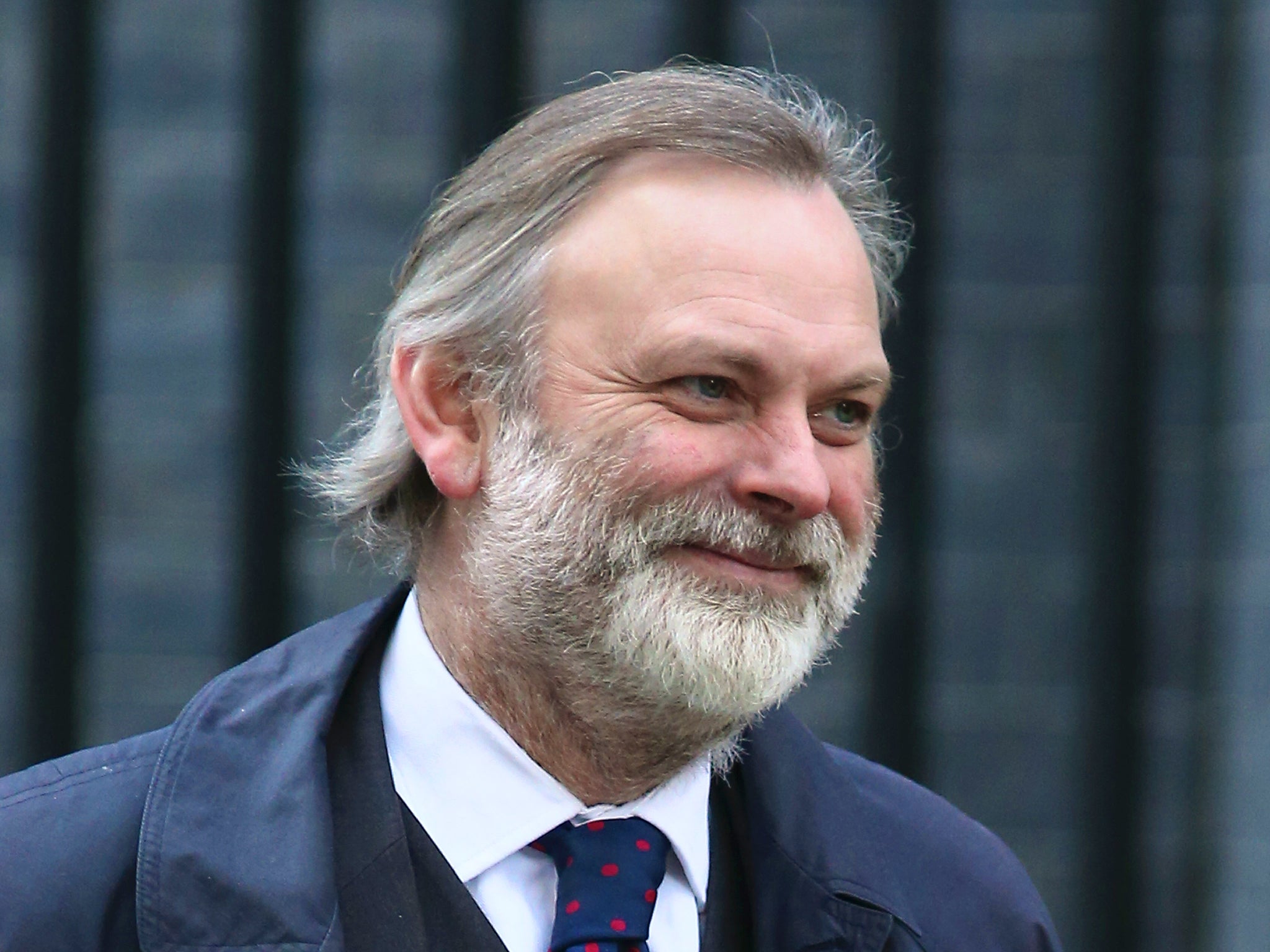Brexit divorce bill will rise by up to £5bn if Theresa May seeks longer transition period, MPs told
‘This is something which, like the Roald Dahl Tales of the Unexpected, has suddenly appeared,’ senior MP warns

Your support helps us to tell the story
From reproductive rights to climate change to Big Tech, The Independent is on the ground when the story is developing. Whether it's investigating the financials of Elon Musk's pro-Trump PAC or producing our latest documentary, 'The A Word', which shines a light on the American women fighting for reproductive rights, we know how important it is to parse out the facts from the messaging.
At such a critical moment in US history, we need reporters on the ground. Your donation allows us to keep sending journalists to speak to both sides of the story.
The Independent is trusted by Americans across the entire political spectrum. And unlike many other quality news outlets, we choose not to lock Americans out of our reporting and analysis with paywalls. We believe quality journalism should be available to everyone, paid for by those who can afford it.
Your support makes all the difference.Britain’s Brexit divorce bill will rise by up to £5bn if Theresa May seeks a longer transition period than Brussels wants, a commons inquiry has been told.
A government minister did not dispute the figure, which was put to him by the chair of the European Scrutiny Committee.
“This is something which, like the Roald Dahl Tales of The Unexpected, has suddenly appeared,” said Sir Bill Cash, the committee’s Conservative chair.
The transition period was beginning to look “as long as a piece of string”, Sir Bill told Robin Walker, the Brexit minister, and Sir Tim Barrow, the UK’s ambassador to the EU.
In reply, Sir Tim acknowledged that the Government’s estimate of the financial settlement – between £35bn and £39bn – was based on the transition concluding at the end of 2020.
Guidelines issued by No 10 yesterday hinted that the transition could be longer, while repeating the aim for it to be “around two years” from Brexit Day, in March 2019 – therefore, extending into at least 2021.
However, Sir Tim insisted there was no question of a transition of “unlimited duration” – pointing to the EU’s directives seeking a conclusion at the close of 2020.
“That is the basis on which we are currently talking to the Commission,” he told the committee.
Nevertheless, the latest UK document states – to the fury of many pro-Brexit Tory MPs – that Britain would only stop following all EU rules when both sides are ready to “implement the future partnership”.
On Wednesday, an EU source exclusively told The Independent: “Britain will have to pay for any transition beyond 2020, probably annually and with no rebate.”
Sir Bill did not explain how the cross-party scrutiny committee had learned that the increase in the divorce bill was expected to be between £4bn and £5bn.
The revelation will add to controversy over the size and details of the settlement, which the Prime Minister has sought to obscure.
It is already being investigated by the National Audit Office (NAO), which will pore over the “assumptions and methodologies used” to calculate the payment, to settle Britain’s liabilities before EU withdrawal.
Ministers have already clashed with the EU after Brussels insisted the money will have to be paid, even if talks to strike a post-Brexit trade agreement fails.
Labour MP David Lammy, a supporter of the anti-Brexit Best for Britain campaign, seized on the increase, saying: “The Prime Minister needs to come clean about the true cost of Brexit.
“With every passing day, the apparent benefits of leaving that the people of this country were promised by Leave campaigners are being revealed as illusory and the costs are becoming ever greater.”
In his evidence, Mr Walker also confirmed that the transition would require a “complete acceptance of EU law” – with no voting rights in the council of ministers, or European Parliament.
“That is the approach that we have consistently taken to this, but recognising it will be for a time-limited period,” he said.
Britain is arguing for a “mechanism for raising concerns” before new regulations are introduced, but the EU seems certain to reject the request.
The minister did not dispute that none of the 50-odd third countries with which the EU has trade deals had so far agreed to “roll over” those agreements after Brexit.
Geraint Davies, a Labour MP, said he had been told that Chile and South Korea were demanding more favourable terms in order to do so.
Sir Tim said he had had “no conversations” with any countries that appeared to object to continuing the trade deals with the UK.
Mr Walker also downplayed No 10’s suggestion that oversight by the European Court of Justice – something else which angers Brexiteers – would end at some point during the transition period.
Join our commenting forum
Join thought-provoking conversations, follow other Independent readers and see their replies
Comments